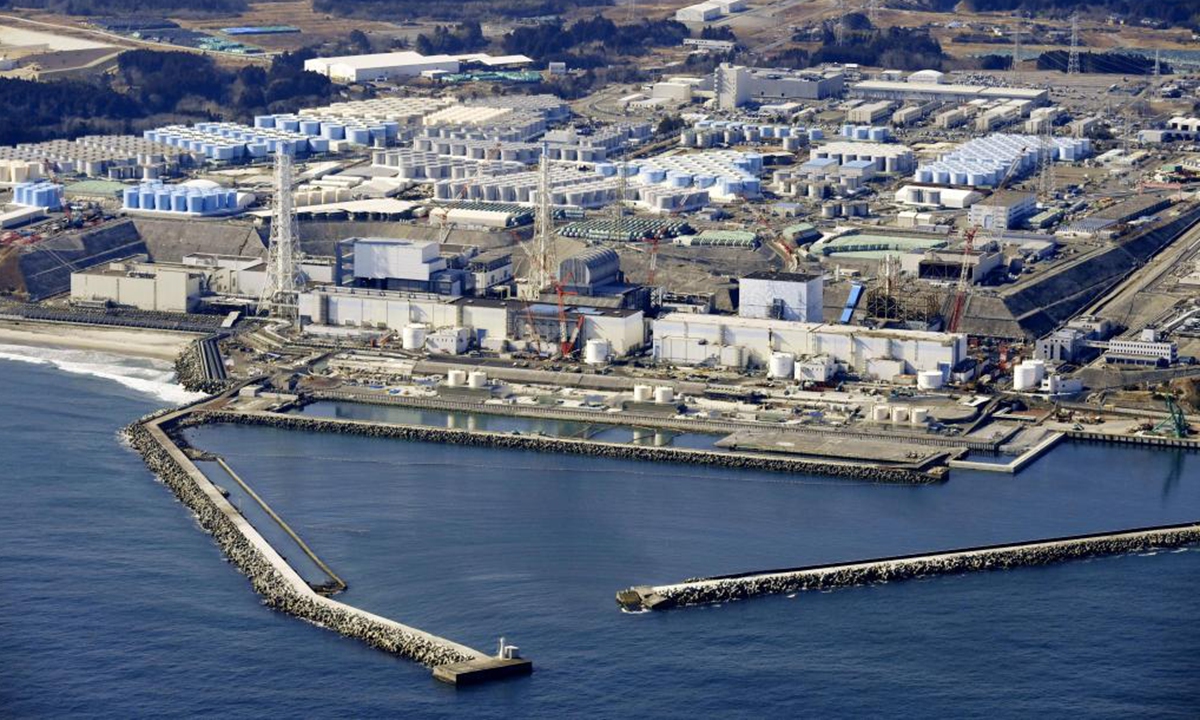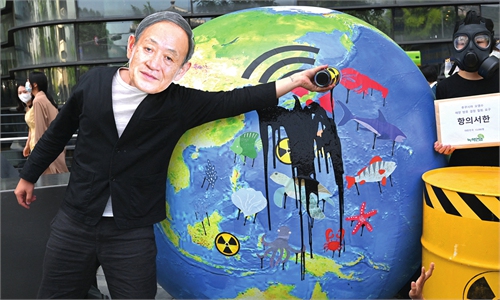Chinese FM asks Japan why it won't release Fukushima water into own lakes if it’s really harmless

Tanks at the crippled Fukushima nuclear power plant store nuclear-contaminated wastewater. Photo: Xinhua
After the Nuclear Safety and Security Commission of South Korea expressed regrets over Japan's radiological impact assessment of the release of Fukushima wastewater into the ocean, the Chinese Foreign Ministry asked Japan why it would not release the nuclear-contaminated wastewater into its own lakes if it believes the water is harmless.
"Is the discharge of contaminated water from the Fukushima nuclear plant really inevitable, or is Japan just going its own way for its selfish interests? If the nuclear-contaminated water is harmless, why wouldn't Japan release it into its own lakes? Japan, please answer the question," Zhao Lijian, spokesperson of the Chinese Foreign Ministry, said at Friday's media briefing.
Zhao's remarks came after the operator of the Fukushima nuclear power plant said Wednesday that treated radioactive water would have an extremely small impact on the environment, marine life and humans when it is released to the sea, AP reported.
Since the Japanese government unilaterally decided to release contaminated wastewater into the sea in April, public questions and opposition from Asia-Pacific countries and within Japan has not stopped, but Japan has not given a convincing explanation on the decision's rationality, necessity, and safety, Zhao said.
He said seven months after making the decision, Japan came up with an assessment report, which further showed that the decision made back in April was not scientific or rigorous, Zhao said.
Zhao said that Japan has turned a deaf ear to the legitimate concerns and appeals of the international community over the past seven months, and what the international community has seen is that the Japanese company in charge of the disposal of contaminated water in Fukushima has repeatedly tampered with data and concealed the truth.
Zhao reiterated that the disposal of contaminated wastewater in Fukushima is by no means a private matter for Japan. We must exercise extreme caution and carry out strict supervision. Japan should earnestly respond to the voices of neighboring countries and its own people, reverse its wrong decision and fulfill its due international obligations.
Japan should not let its "black swan" of nuclear leaks turn into an overwhelming "gray rhino" of nuclear contamination, Zhao said.
Global Times

